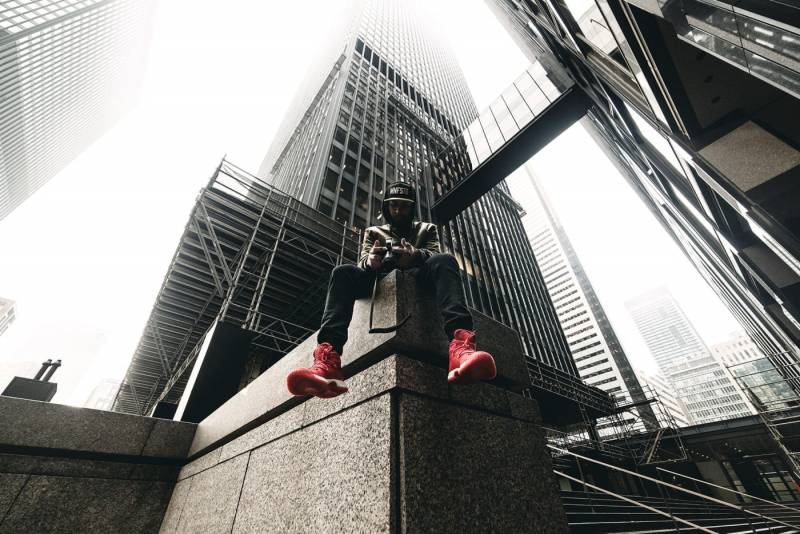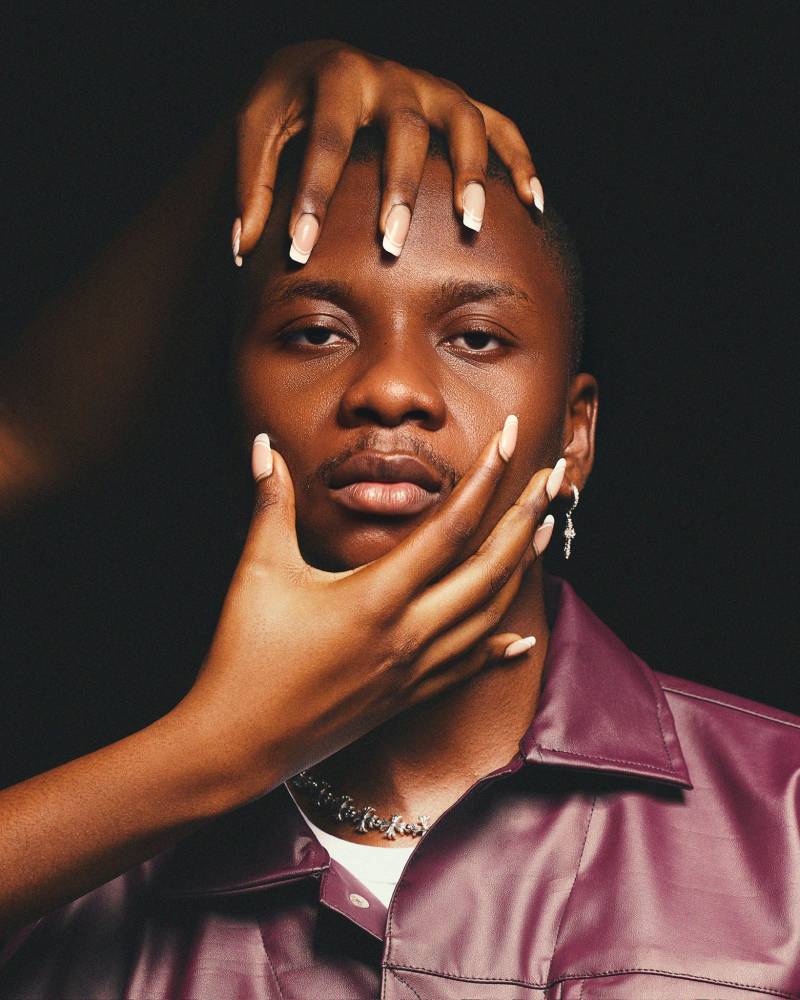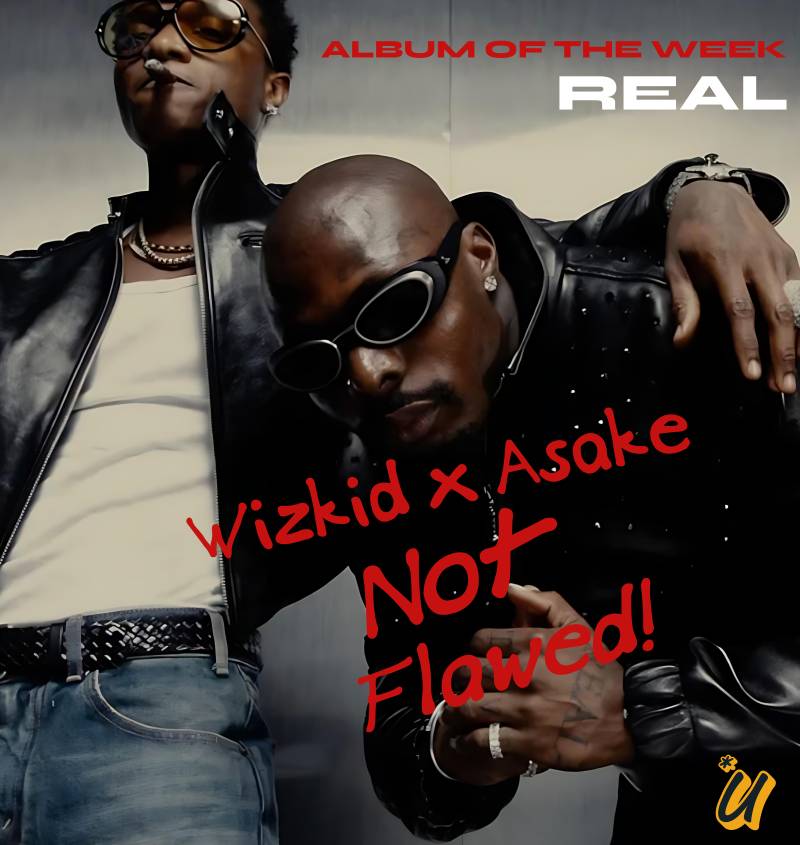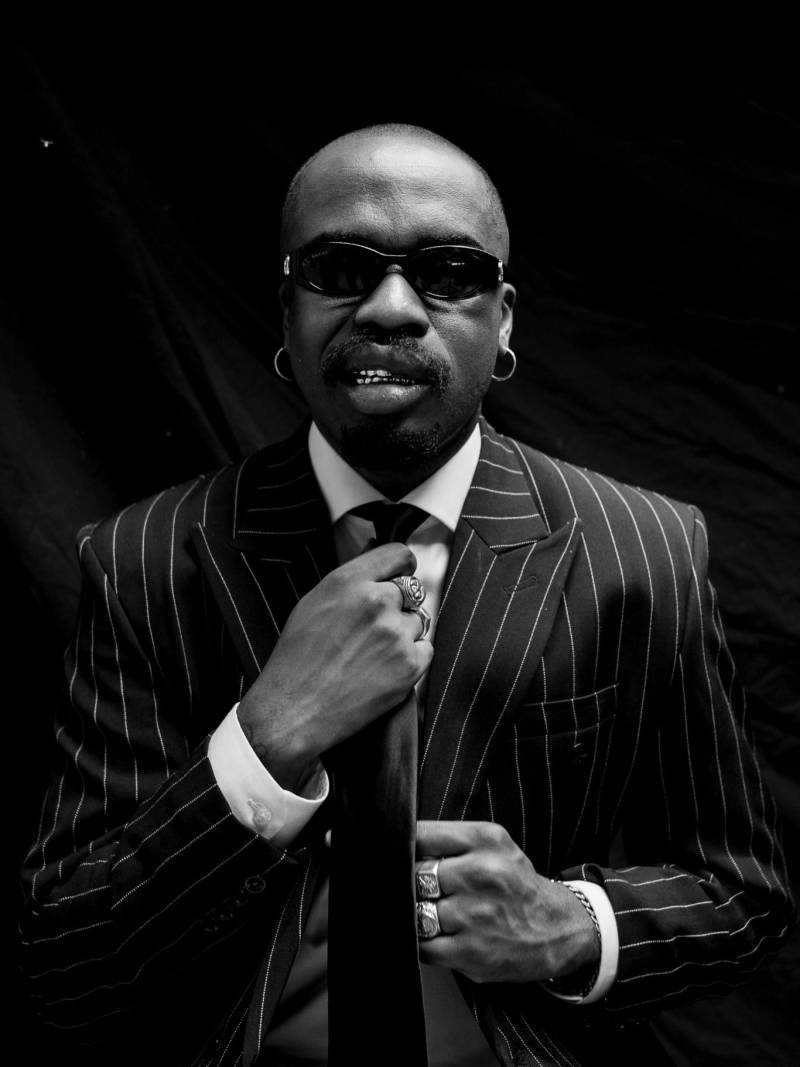The term "royalty" has re-emerged in popular culture advocates, removed from European fairy tales and the archaic confines of monarchy and redefined as a accessible point of reference for ordinary people yearning for their little greatness. Crown Royal understands this and invites us all to reinvent the modern royal. Last year, the Canadian whiskey brand teamed up with Toronto-based multidisciplinary artist Justin Broadbent to put their own spin on their signature purple bag, using handcrafted illustrations that revolve around theme “To me, you are royalty.
This time around, Broadbent is passing the crown to ever-so-talented Pan-African and Afro-Futuristic multi-disciplinary visual artist Adeyemi Adegbesan, who’s also from Toronto and is more commonly known as Yung Yemi. Together, Broadbent and Adegbesan are creating a limited-edition purple bag inspired by a new theme: “When I shine, you shine.”
Read Also: John Boyega Won’t Let Go of ‘Star Wars’ or ‘Coming to America’
“Justin created the first one. And with this one, I did one side and he did the other,” Yemi tells us, breaking down the collaborative process. “Then, I’m working with three other creators to do a design inspired by them and it’ll have one of my designs on the other side.” Each creator is also Canadian and has amassed a following that they inspire in their respective fields.
Kicking things off is Brampton’s own Haviah Mighty, who became the first-ever rapper to win the Polaris Music Prize in 2019 and the first woman to win Best Rap Album at the 2022 Juno Awards. Next is “The Hockey Jedi” Zac Bell, a hockey star from Orillia who rose to social-media stardom after a career-altering injury and now holds a Guinness World Record for his stick-handling. And the final person to get their own design is fashion content creator and co-creator of blog-turned-web phenomenon Sidewalk Hustle, Hawley Dunbar.
We all carry keys to open doors that unlock greatness, and to Crown Royal, passing the crown is an opportunity to recognize someone in your life who has inspired you to become the person you are today.
Ahead of the release of the new limited-edition bags, Complex Canada caught up with Yemi to discuss the Crown Royal collaboration, journeying through artistry, and Black people in the future.

You also worked with Zac Bell and Hawley Dunbar. What aspects of their unique journeys informed your inspirations in representing “modern royalty” with Crown Royal?
It was really cool. Hawley, I knew as well. I used to do a lot of commercial photography work so I would see her at a lot of events. I have respect for how she’s been able to build her brand and work outside of the constraints of the 9 to 5 life. She’s built a really dope brand that’s allowed her to travel all over the place and do a lot of cool stuff. I have a lot of respect for that as well. For her design, we worked around her inspiration, which came from her mother. Our whole conversation revolved around the efforts that you put out in the present moment and how those turn into the legacy you end up creating and passing down.
With Zac, it was my first time meeting him and learning about what he does. He’s a ball of energy and a creative force. It’s really inspiring getting to talk to him and his creative journey. He turned something that he was doing in his backyard into a full fledged career, where he’s got hundreds of thousands of followers on social media and it’s taken him all around the world, at an incredible young age as well. It was really cool to talk to him and hear about his passion for hockey, sharing that message and that’s what I tried to put into the design I made for him.
The creative process with Zac and Haviah was really fun. I basically just tried to incorporate the themes that we talked about and the energy and the vibe that I felt when we had the opportunity to meet. Haviah is a trend setter and has been breaking a lot of barriers in her industry so the lightning bolt basically represents her energy and her spirit and the chain being broken is the barriers that she has been able to push through since entering the music industry. With Zac, I was really impressed with his passion for what he does and his dedication to his craft. He also told me that the lion is a personal symbol that he really identifies with. So the design is meant to really just encapsulate that passion and the fierceness he’s shown in making his own path, in the form of a lion with a hockey stick.”
Brown or White liquor? If any at all?
[Laughs.] Uhm, brown to be honest with you, I keep a bottle of Crown in the fridge in my studio here and that has nothing to do with this campaign. I’m not going to say I’m exclusive to it but it’s definitely a part of the rotation.

When did you discover your passion for creating? Especially discovering different mediums?
I’ve been creating my whole life. My mom was a nurse when I was little and she worked nights. So that meant every night I was with a babysitter and during the day she was sleeping, so I was in the apartment trying to occupy myself. We didn’t have a TV until I was 7 years old, so I had to figure out how to keep myself entertained and pencil crayons and paper are my earliest memories. That’s basically how it started. I wasn’t able to turn art into a full-time career right away. I went to school for social work and was a youth outreach worker for a number of years and I just kept the art going on the side and kept pushing, trying to make it work. About 10 years ago, I had a breakthrough with my photography and was able to transition into just doing that full time.
Creatively, I’m a very curious person, so even once that started rolling and doing well, I didn’t want to stop and set up camp with that. I just wanted to keep learning, keep experimenting, and I started pulling a lot of influences from things I was into as a kid like science fiction, comic books, sports and pop culture and mixing that with some of the skills I had from photography—mainly digital skills like Photoshop and stuff like that—and started to create these Afrofuturistic portraits that took on a life of it’s own outside of the photography I was doing. I’ve been running with that for the last couple of years.
As Black people, in the diaspora and sometimes even in our home countries (due to colonialism), we appear in the world behind many layers, wearing so many “masks.” I read that humans in your art are wearing masks full of African symbolism, not as a means of hiding but to channel our ancestors. I’m curious about your journey when you began seeking a relationship with the ancestors? How do you think others who are in similar headspaces can begin their journey back to Africa?
For me, it’s sort of been a lifelong thing. I’ve always sought to find out as much as I could about my identity. I’m biracial, my dad is Nigerian and my mom is Swiss, but I’ve always identified heavily with my Blackness. Both in a positive sense with the people I grew up around and the culture I was able to experience, but also negative, being pretty heavily affected by some racial incidents when I was quite young. It settled me in my Blackness; I knew that this was my experience and that it would be much different from the white side of my family. But it was something I always wore as a badge of honour, that I’ve been proud of and undertaken as a lifelong journey to accumulate knowledge and build that base for myself.
I’d say to others who are in that headspace that there is so much richness in cultural heritage. Unfortunately, if you grow up in the diaspora, and went to a Canadian, European or American school, a lot of that history gets suppressed and, in a lot of cases, purposely concealed. You just have to be very vigilant and take that on as a mission. The information is available but it’s not going to be offered to you the same way colonial history is presented. I’d encourage people to be curious and pursue that kind of education outside of the education system.

This may have something to do with you being a social youth worker at some point but I noticed two words you use often; it’s written on the inside label of your merch. What does the phrase “Hold Space” mean to you?
“Holding Space” is really just about giving room to other people to be at peace with their own experiences as they move through life. There are a lot of forces in society that try to impose things on us, from racial identities to gender identities and all these class identities–all these different things. Something that is really important to me is to try and be open to whatever they are bringing to the table and to fully allow them to define themselves throughout our interaction. I really want to be mindful of not imposing my worldview on somebody else’s identity. That’s what [holding space] represents to me, that’s one of the things that I want to encourage people to do and one of the things I want to put out into the world.
To you, what space do people of African descent hold in the future?
I believe that we are giants. I think that so much of what people of African descent have done has already influenced the world in profound ways. I think as we move into the future that legacy will continue to be felt. Another thing that is really important to me, and I look at it through an Afrocentric lens but I think you can speak to that all over the world. The idea that indigenous cultures have this wealth of information—whether we are speaking about African, North American or Asian Indigenous cultures–that as we move into the future and it feels like things are going off the rails a little bit, it makes a lot of sense to look to these cultural practices, ways of living and synergy with the world that through colonialism have been covered up and lost to a great extend. If we can sort of refine and reconnect to these practices, it might really help alleviate some of the madness that we are struggling with on a day-to-day basis.

I think one of the best representations of Afrofuturism in popular culture is Black Panther. Are you a Black Panther fan? Have you seen the “Wakanda Forever” trailer?
I’m definitely a Black Panther fan and I’m very excited about the movie. I’ve taken in a fair amount of criticism about the film and understand its not a perfect representation but with that being said, I think not everything is going to be a perfect representation. I feel like that movie created a lot of joy, I remember going to see it at Scotiabank Theatre, it was filled with Black people and everyone was totally vibing out. A lot of smiles, a lot of energy. It felt like a party in the movie theatre. There is such a lack of positive representation for Blackness and Black culture in the pop culture sphere and I think a moment like that coupled with the success of the movie, makes it feel nice to be seen and recognized. A lot of superheroes and comic books play a big role in socializing for a lot of kids. I can only speak from a North American perspective, through cartoons, comic books and backpacks and stuff like that, it’s a big part of growing up out here and you don’t really see the Black version of that. When that movie finally came out it just made a lot of people feel seen and I think that’s very important.
This is Complex, so I’m going to have to ask you a music question. Are you into Afrobeats at all and if so, who are your favourite artists right now?
I got to shout out to Mr.Eazi. I got a chance to photograph him the first time he came to Toronto. I’m definitely feeling what Wizkid is doing. Honestly, when I’m in the studio, I listen to a lot of old stuff, old soul music and R&B. On a regular basis, I’m kind of more down tempo but I love the energy and visuals that are coming out of the continent right now. Obviously, Burna Boy is everywhere and that’s a concert I’d love to see.




